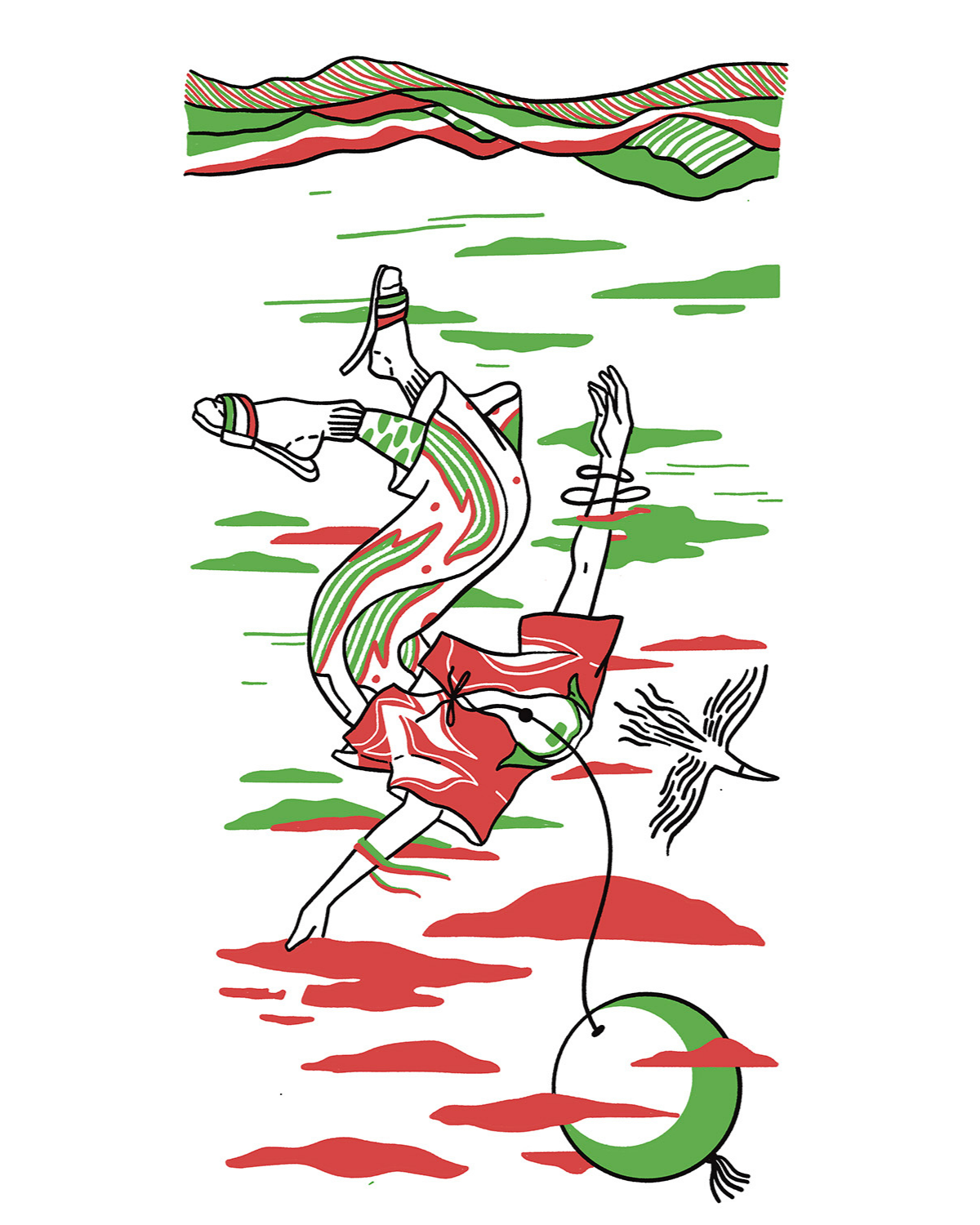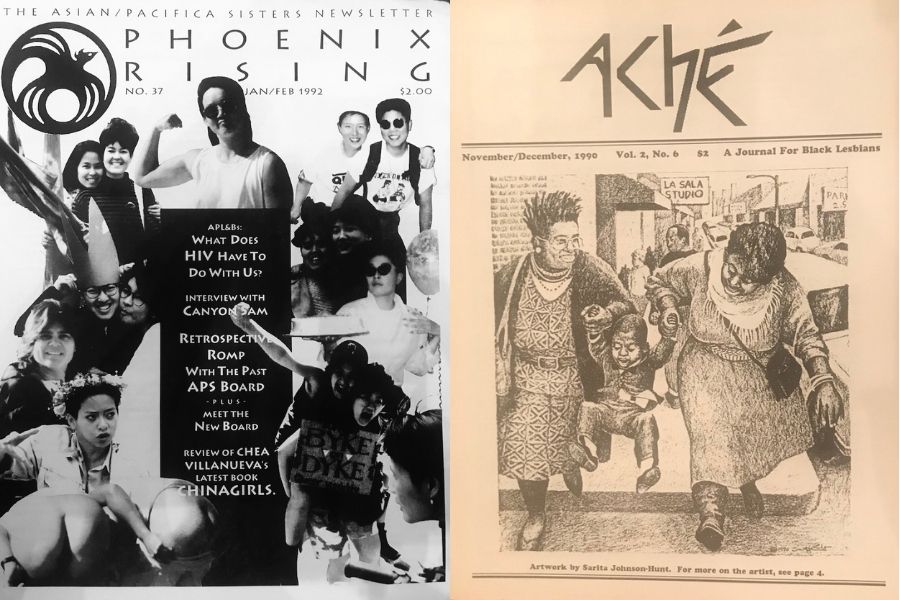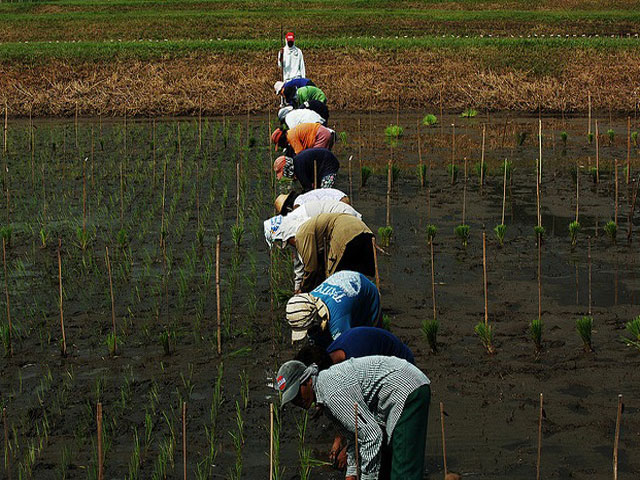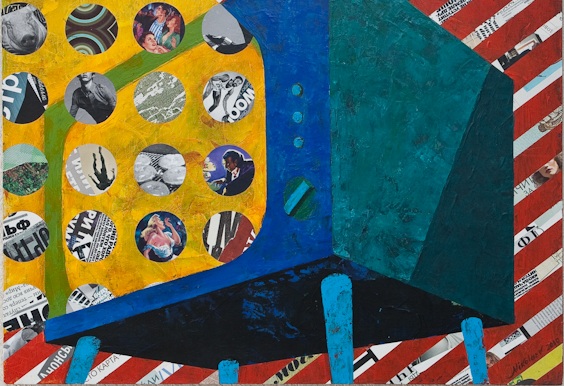With our existence contested, denied, stricken from history, it is no wonder it takes the evidence of other lives to confirm the solidity of our bodies under our fingers’ touch.

On November 7, Mizna is hosting a launch event in Minneapolis for the print edition of I Want Sky: Celebrating Sarah Hegazy & Queer SWANA Life. Tune in to the livestream of the event on Mizna’s Facebook page. And pre-order a copy of the print edition of I Want Sky here!
Starting this June, in the gayest drip you’ve ever seen, we’ve been publishing pieces of poetry and prose from queer and trans SWANA writers as part of the notebook I Want Sky: Celebrating Sarah Hegazy & Queer SWANA Life.
There’s a lot more than just its writers queering the issue. First, this edition of The Margins is the product of a special partnership between the Asian American Writers’ Workshop, of NYC, and Mizna, of Minneapolis. Which is to say, you don’t even want to know how many fingers have been in this gay pie! Third, it is an edition of The Margins that will live in two formats, digitally, and in print, with pieces exclusive to each format. All the pieces included in the digital notebook are here, and the print edition is available to order here, in a gorgeous design by Wael Morcos, and with illustrations by Haitham Haddad.
Aside from the pleasure of my first and subsequent editorial encounters with all of these pieces, I’ve been re-reading each as they’ve gone live, trying desperately to come up with something useful to say about what the issue mourns and what it celebrates.
What is there to say?
I could talk about the preventable, devastating, reverberating loss that sounded throughout my queer community at the news of Sarah Hegazy’s passing. Or the cruelty that underscored our devastation coming from our other, SWANA, community in public response. I could talk about why this journal; about the importance of witness; about visibility for those of us who can afford it; about the possible future or the enduring past or the vanishing present, about whatall to do about any of it.
That’s not an essay I’d want to read, and it’s even less an essay I want to write. About Sarah Hegazy’s murder by marionette, there is both nothing and everything to say. I read this issue mostly in awe, at the miracle: queerness surviving and thriving in hostile environments, stretching across spheres of home, schools, pulpits, busses, streets.
But here is what I already know, and what editing this notebook has reminded me of: Every day, we make each other possible. Every single day a SWANA queer gets up and through breathing the air of their bedroom keeps the rest of us breathing. With our existence contested, denied, stricken from history, it is no wonder it takes the evidence of other lives to confirm the solidity of our bodies under our fingers’ touch. So I start by saying thank you: from my sixteen-year-old self Googling gay and Arab and gay and Muslim and continuing to find answers this many years later; and from my adult self, too, who will still cross a street just to walk by the gay bar on it. To every writer in this issue: it has been an honor to live in and through your work and worlds. Thank you for making us and me possible.
And what beautiful poetry and prose birthing that possibility! In litany for sarah, Mejdulene B. Shomali composes for Sarah a secular song and prayer, elegant and [though] elegiac, celebratory too. In Influencer, Ghinwa Jawhari stretches the canvas of an inky night in Lebanon, where the wild things roam, and sometimes also skinny dip. Recalling the brilliance and resilience of our queer ancestors and contemporaries, Kamelya Omayma Yousef’s two poems, After watching that interview with Um Kalthoum […], and After Arwa said something […] restore them to us. Nada Almosa’s Excerpts from Sarah Hegazi’s letter in exile uses, appropriately, the form of the erasure to narrate the high cost and horrifying aftermath of Sarah’s raising the flag, using her own words. In in the hiding, ‘mad walks us over gravestones in search of a love we have always deserved. Amir Ferdjani’s Faggot Vulgaris engages equally with rage and disappointment, in the winter of our discontent once called Arab Spring. Mish Ismy’s To those of us […] replicates the half- and incomplete sentences through which closeted queerness is forced to communicate, even to those dearest to us. Banah el Ghadbanah’s Arabic Dictionary Exercise […] pries apart language to show us its foundations, culture proscribed in single words, while zir triptych of goddess poems read like “soft citrine holiness on my tongue.” Shiyam Galyon’s Moviegoer delivers, with pinching humor in micro-prose, the strangenesses of homophobia in the workplace, lifespace, familyspace. In Till We Meet Again in Spring, Qais Kamran shows us the power of being seen as genderfully as we present, and the fierce, life-saving commitment we make to one another as a community, to do just that. Janine Mogannam, in Eulogy to be read from […], uses form to embody discombobulation and lack of access: to visibility for the targeted, to Arabic for its children of diaspora, to joy on Cairo boats if you happen to be in one called Queen. Niki Afsar’s into the mountain appropriates and writes our new and old stories in ancient myth. donia salem harhoor’s mire considers the queerness in truly radical care, borrowing words from a book whose title makes me want to live its pages: The Book of Coming Forth By Day, while their perihelion delivers this talismanic reminder: “you have already breathed through this burning.” Nusaiba Imady’s Hind On the Death of Al-Zarka describes a love keening against mortality, before manifesting the eternal. In AMA’s Queering Time Queering Tense, the cyclicality and stuckness of trauma go head to head—or heart to heart, if you will—with hope’s future-looking gaze. In Slow Death and Labored Breath, Layla Zbinden considers the autophagy of chronic illness in the context of generational neglect, and speaks to ghosts through their photographs. Walid Dao’s أسرعوا في الدفن، ثمة الكثير من الجثث Hasten Your Burials, More Corpses Remain [inexpertly translated by yours truly], takes us to the place of thunder, where we remember and honor our lost.
I want to end by offering, in addition to this more traditional editor’s note, a cento composed of lines from every writer we’ve published in I Want Sky, across both print and online issues. I can think of no better tribute, to Sarah and one another, than our own words, our own stories. Eyes and heart, meet beacon, meet light.
—Mariam Bazeed
Listen to Mariam Bazeed read the cento for Sarah Hegazy
| In the hiding hour of autophagy ghosts hang out all day and talk to us an archival haunting demanding tribute: half a lime for breakfast every day. بشرٌ يئنّونَ من الألمِ human voices keening in pain تُشعلُ أجسادُهم النارَ their bodies, consumed by fire light up the dark فيضيئوا العتمةَ | ’mad LZ QK LZ LZ WD WD tr MB WD WD tr MB WD tr MB WD |
| They will blame the early morning hours في طَيّ الكُتْمانِ: under the seal of secrecy where there was no sunrise though moon tells me god is love unconditional. I | dsh BeG BeG BeG |
| ten thousand years old and no wind milk souring on my tongue whisper until we sleep: Do you see the map home? This world will have you running to stone for embrace. والحجرُ أحَنُّ من البشر gravestone gentler than human | BeG NI KOY ED NA WD WD tr MB |
| The wretched left a monument of comments that day في مجرى الجَلجَلةِ in the place of thunder, I have faith in a world of signs and wonder. this time it will be different Arab spring forcing its way old life re-members lightening would manifest from the stale air. You are prepared for all of it: paraded processions wedding ecstatic when the fists rush towards your gut | NK WD WD tr MB QK AF AF dsh GJ dsh JM dsh |
| they will find instead smoke. Our desire up to our throats, increased blood flow ripping heart open from within dead now after decimating perfectly healthy skin we will become history contested. A light in the earth of her chest. | dsh SG LZ LZ NI KOY |
| Grief is a country without borders eulogy to be read from right to left —baba’s tongue buried in sand— I dream in Arabic of salt drink gallons but the ocean stays the ocean and once again I wake / am a wake in English. I’m thirsty is what’s killing me most. | AMA JM dsh AMA AMA AMA GE |
| Don’t die this way. Wake up drink water one foot and then the next walk meet the sun | MI NA |
| A face that is so itself to look upon it on that summer day was like drinking prism refracting rainbow rupture rapture who washed her, who folded her into eternity, who— | QK QK MBS MBS NK |
| This is the only river I want to write about. | NK |
| I am the entire galaxy in a drop. | ED |
| Don’t you know I am everything? | ED |
| An absconded city of bees. A novel adjective. | dsh WD tr MB |
| Each moment I invoke the music of my people who danced in a room so small our knees kissed half laughing half expurgation mirror tilted towards the sun. | ED QK NI NI NA |
| I dance a century after her song. | KOY |
| I am a sapling old enough to cast a shadow. I am the tree pulling sap up my body to nourish sprouting leaves for spring. I am flowing water I am a community garden overrun by aphids in bloom one day I decay and the next I am the moon I am mountain my tears flow from bare stone my body is rock and dust. I am ascendant. | KOY NA NA + dsh NA NA ED |
| The sky I want is blue. | NK |



